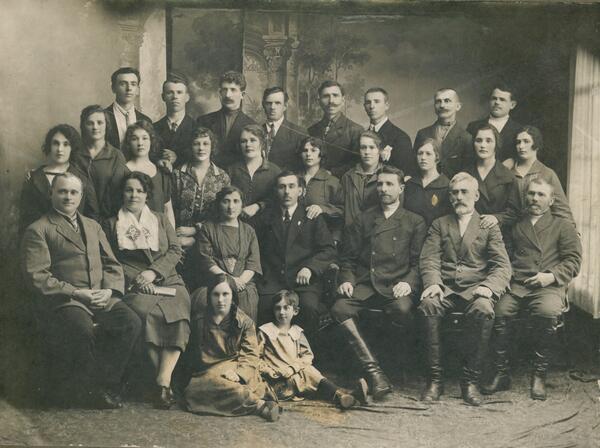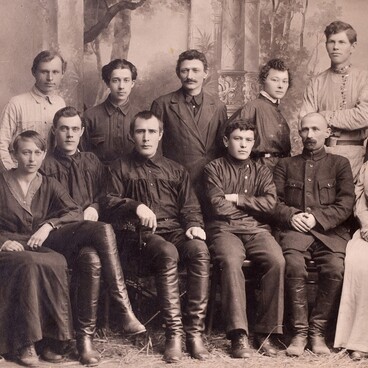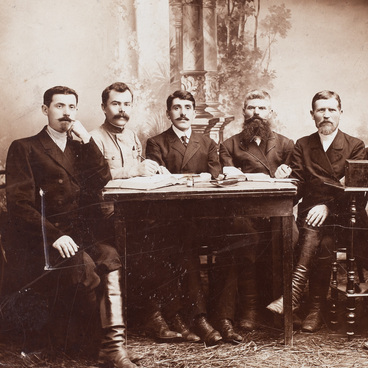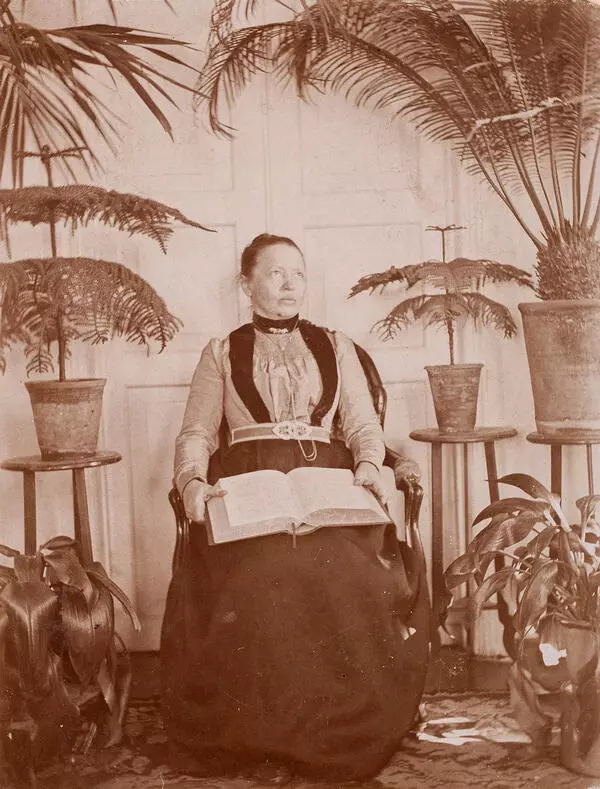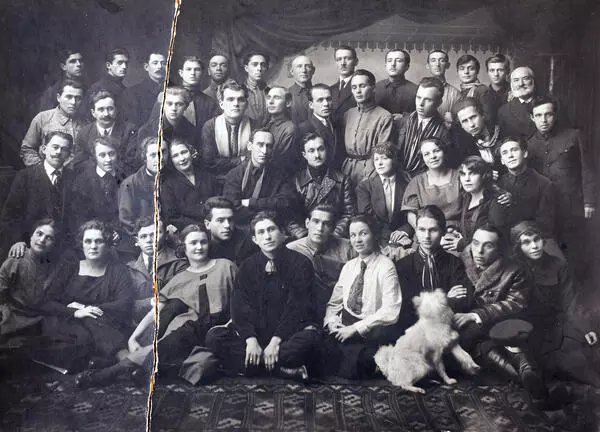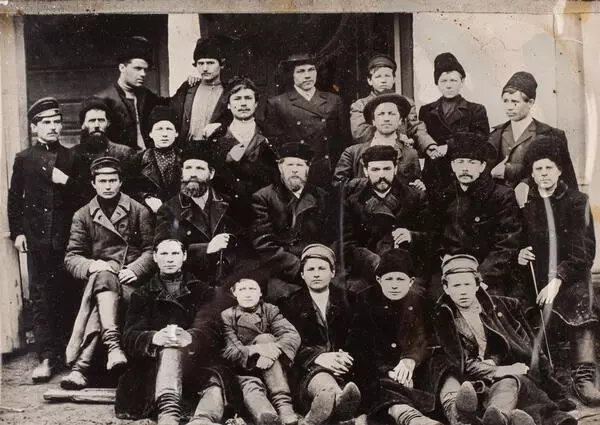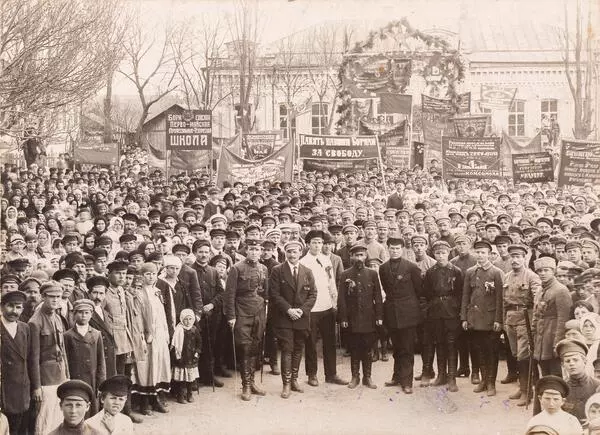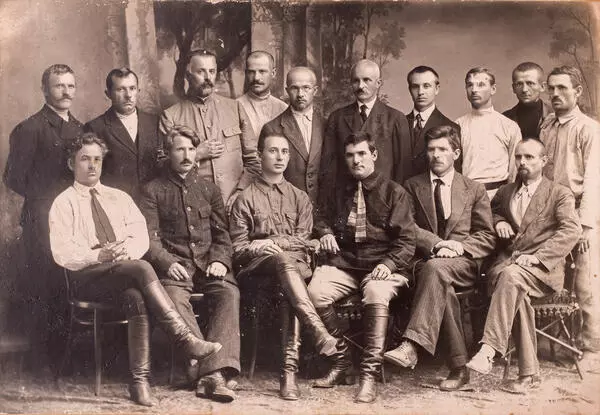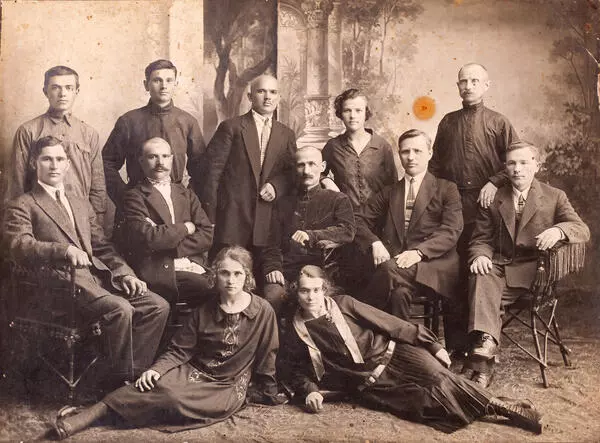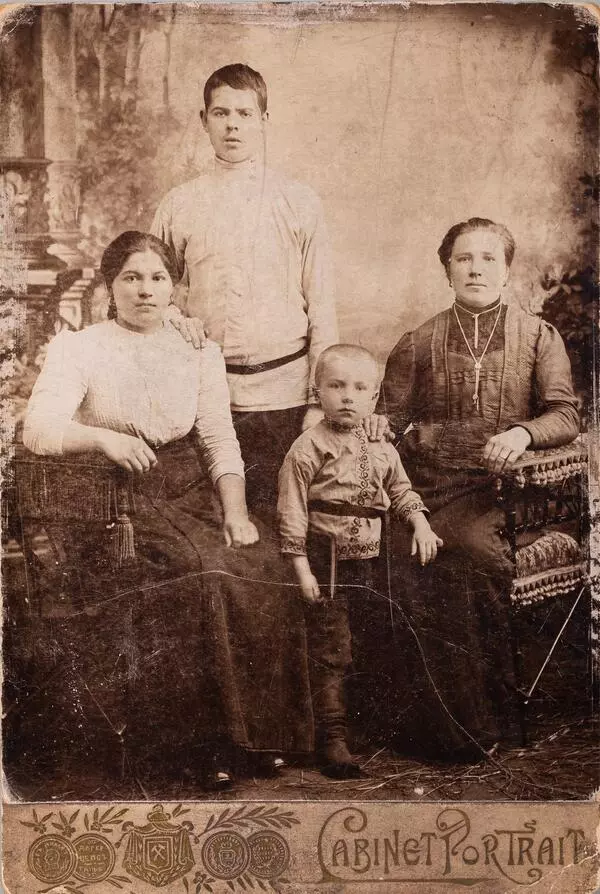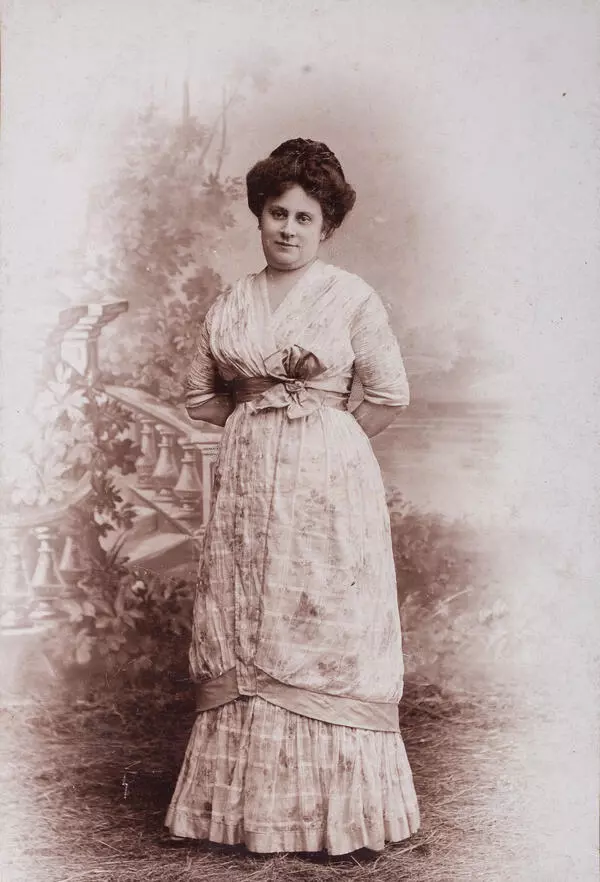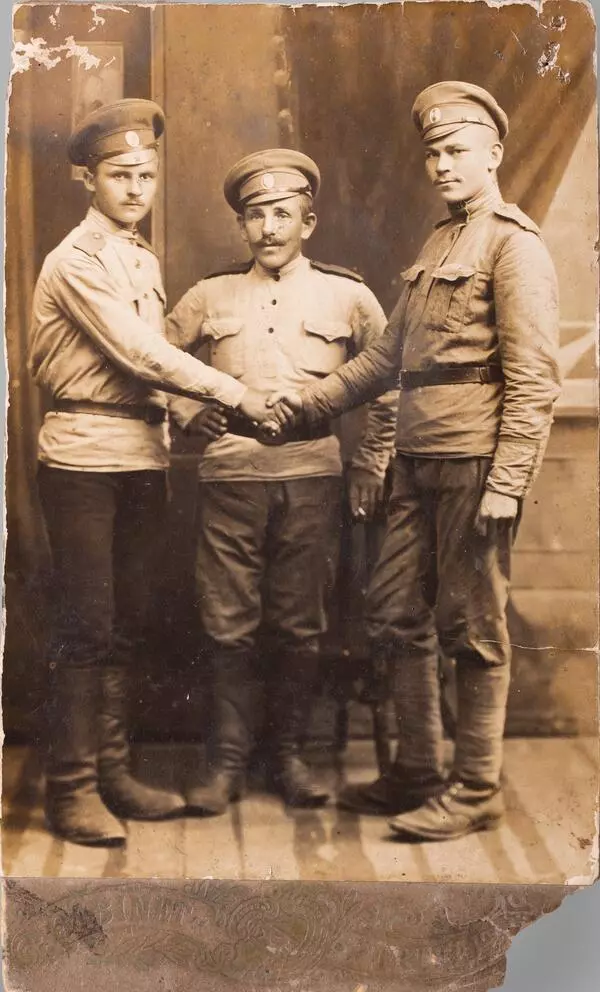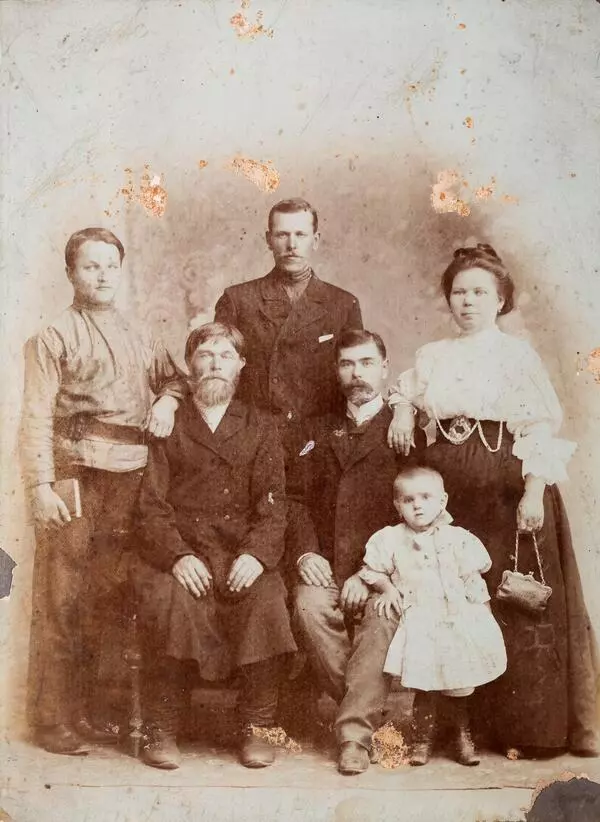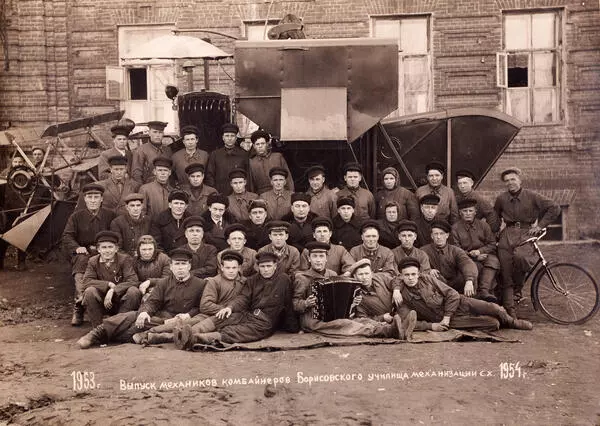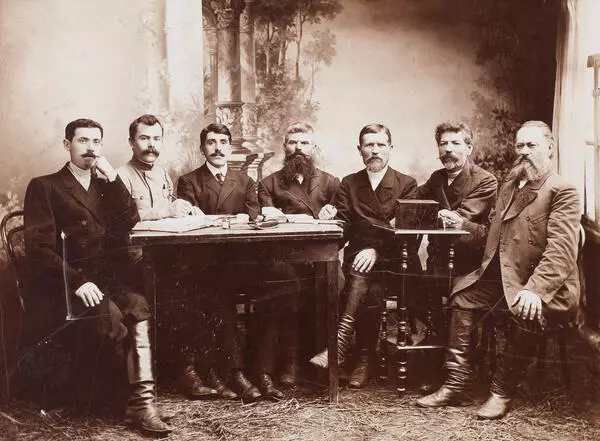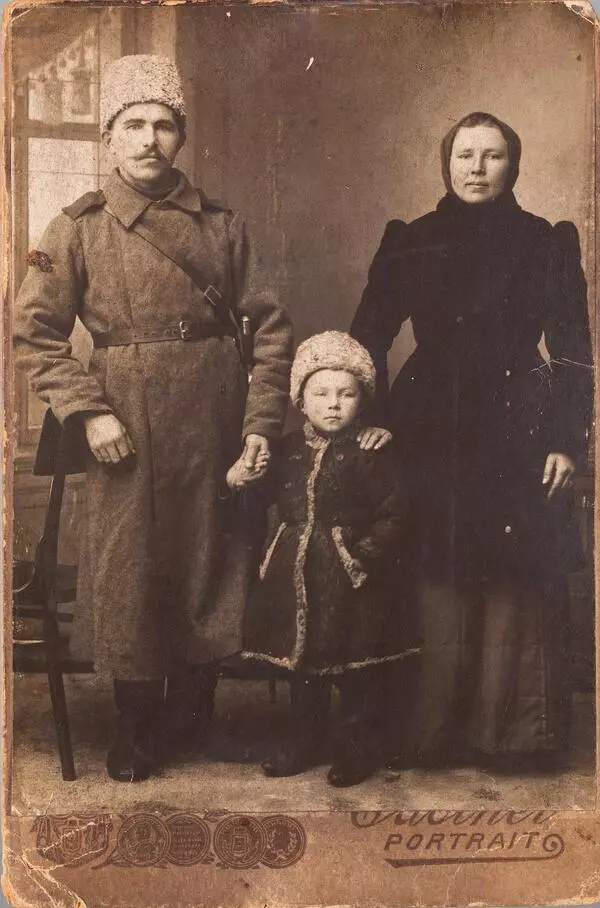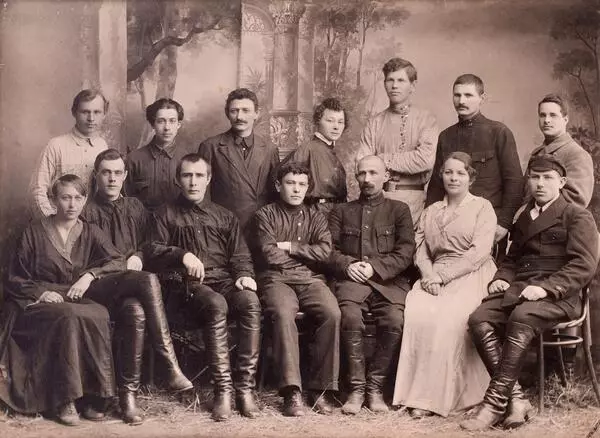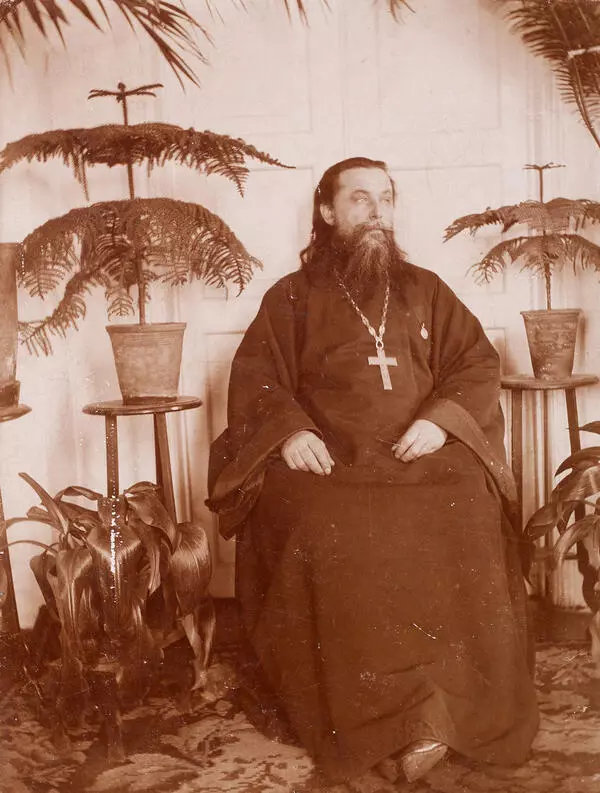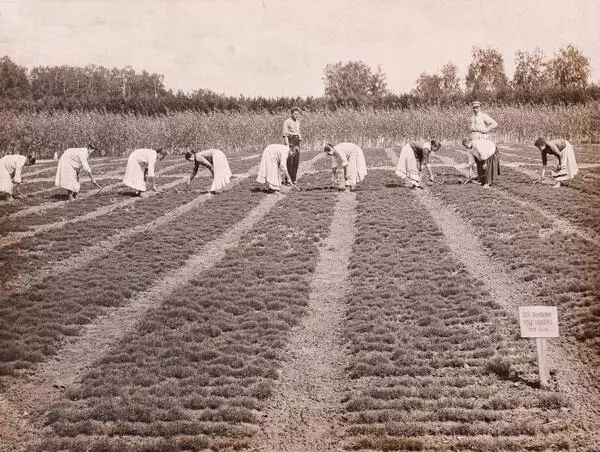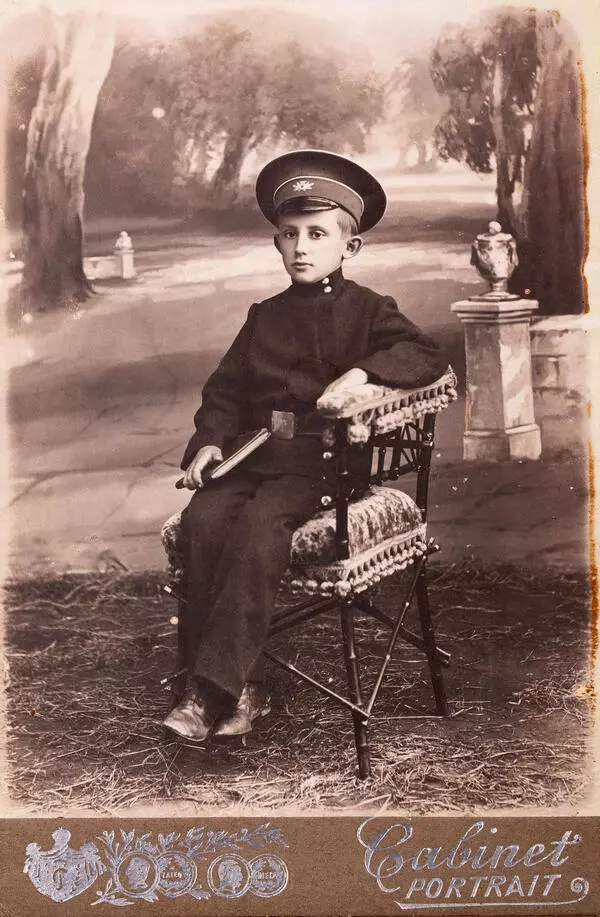Grigory Vasilyevich Safontsev often photographed actors — both professional and amateur groups.
The theatrical life of Borisovka was closely associated with the name of Pavel Yakovlevich Israeltyanko, better known under the artistic pseudonym Barvinsky. A native of Borisovka, he graduated from a gymnasium in Moscow and studied vocals at the Moscow Conservatory for two years. Returning to his native land in 1887, he married Adelaida Mikhailovna Nikolaenko, a wonderful soprano. Under the pseudonym Goidarivna, she performed a lot with her husband.
In the same year, thanks to the efforts of Barvinsky, a group of theater lovers was formed in the settlement, which was even mentioned by the “Kursk Provincial Vedomosti”. A year later, the actor and his wife joined the troupe of Marko Lukych Kropyvnytskyi, a Ukrainian playwright, director, actor and singer, an expert on rural Ukrainian life. Later he also played in the troupe of Georgy Iosifovich Dergach (real name Lyubimov).
In 1900, Barvinsky began touring the cities of Ukraine with his own troupe, made up of talented Borisovka residents. That period was short-lived: the troupe broke up due to financial difficulties. Barvinsky joined Lviv’s “Russian Conversations”, but soon fell ill and had to conclude his acting career.
The actress Alexandra Fyodorovna Dyumina, who worked with Pavel Yakovlevich, recalled him as a highly intelligent actor, a talented singer, dancer, choral conductor who played a variety of instruments. Pavel Barvinsky also had a knack for writing, which was recognized by Anton Pavlovich Chekhov: the writers were in correspondence. Researchers note a certain consonance of their creativity, for example, the similarities between Chekhov’s “Boys” and Barvinsky’s “Americans”.
In 1907–1908, Barvinsky’s prose and dramas were published in a two-volume edition. This included the dramas “Modern Don Quixote”, “Katorga”, “Antos Dukat”, the libretto for “Aeneid” — a comic operetta based on a poem by Ivan Petrovych Kotliarevsky — as well as 12 short stories.
In 2001, the book “Selected Works” was published in Belgorod, which includes 11 stories and these three plays translated into Russian (by Zoya Timofeevna Prokopenko, professor of Belgorod State University).
The theatrical life of Borisovka was closely associated with the name of Pavel Yakovlevich Israeltyanko, better known under the artistic pseudonym Barvinsky. A native of Borisovka, he graduated from a gymnasium in Moscow and studied vocals at the Moscow Conservatory for two years. Returning to his native land in 1887, he married Adelaida Mikhailovna Nikolaenko, a wonderful soprano. Under the pseudonym Goidarivna, she performed a lot with her husband.
In the same year, thanks to the efforts of Barvinsky, a group of theater lovers was formed in the settlement, which was even mentioned by the “Kursk Provincial Vedomosti”. A year later, the actor and his wife joined the troupe of Marko Lukych Kropyvnytskyi, a Ukrainian playwright, director, actor and singer, an expert on rural Ukrainian life. Later he also played in the troupe of Georgy Iosifovich Dergach (real name Lyubimov).
In 1900, Barvinsky began touring the cities of Ukraine with his own troupe, made up of talented Borisovka residents. That period was short-lived: the troupe broke up due to financial difficulties. Barvinsky joined Lviv’s “Russian Conversations”, but soon fell ill and had to conclude his acting career.
The actress Alexandra Fyodorovna Dyumina, who worked with Pavel Yakovlevich, recalled him as a highly intelligent actor, a talented singer, dancer, choral conductor who played a variety of instruments. Pavel Barvinsky also had a knack for writing, which was recognized by Anton Pavlovich Chekhov: the writers were in correspondence. Researchers note a certain consonance of their creativity, for example, the similarities between Chekhov’s “Boys” and Barvinsky’s “Americans”.
In 1907–1908, Barvinsky’s prose and dramas were published in a two-volume edition. This included the dramas “Modern Don Quixote”, “Katorga”, “Antos Dukat”, the libretto for “Aeneid” — a comic operetta based on a poem by Ivan Petrovych Kotliarevsky — as well as 12 short stories.
In 2001, the book “Selected Works” was published in Belgorod, which includes 11 stories and these three plays translated into Russian (by Zoya Timofeevna Prokopenko, professor of Belgorod State University).

